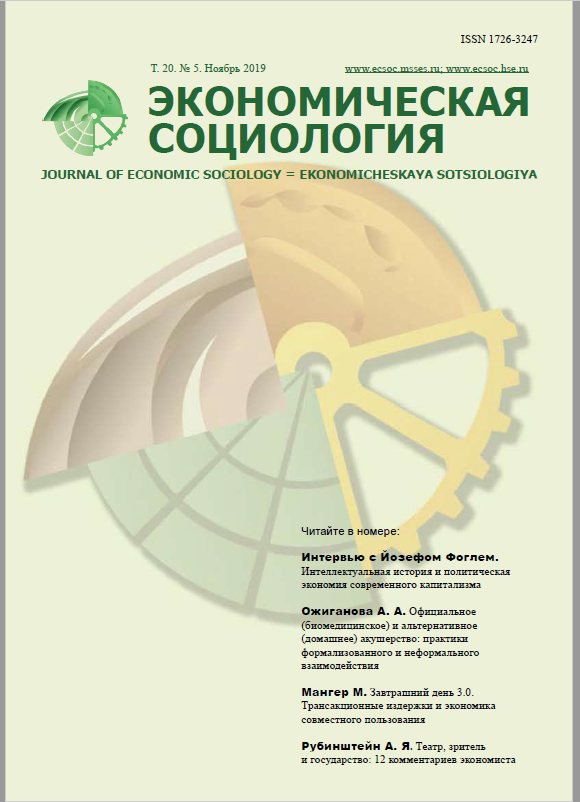“When a Failed Contract is Better than Doable”: How a “New” Understanding of Financial Obligations in the Mortgage Market Led to the Financial Crisis in the United States and Around the World
Book Review: Appadurai A. (2015) Banking on Words: The Failure of Language in the Age of Derivative Finance. Chicago, IL: University of Chicago Press. 176 p.
Abstract
A book from an American anthropologist of Indian origin, Arjun Appadurai, was written much later than the World Financial Crisis of 2007–2008 (WFC). The book introduces the origins of the crisis not from a purely economic position, but from a “substantive” perspective through the prism of economic anthropology and sociology. In this book, Appadurai seeks answers to the question of how the financial systems of some countries began to rely on a large set of “special” arrangements via working with derivatives, thus being tied to great risks and serious uncertainty. Appadurai introduces the principle of “failure of the language,” meaning the communication between financial participants and their intermediaries, emphasizing that the “risks” of non-fulfillment have been “forced” to be more important and mostly more profitable than the direct fulfillment of obligations. The resulting economic collapse was possible to clarify and “foresee” by considering the nature of long-term financial obligations (particularly derivatives), placing them into the analytical frameworks of M. Weber, compared to the logic of E. Durkheim and K. Marx, F. Knight, and E. Ayash. The value of the book is in the understanding of modern financial ideology, where “flirting” with uncertainty and working with “air” are considered as working practices. In a series of chapters, Appadurai indicates the hidden “spiritual” power of contractual obligations, which to some extent, fits into the logic of the Western capitalist system. At the same time, it casts a shadow on the nature of contracts, in particular the capitalist one — their assimilation into “scoring,” “promise,” speculation and excitement, which benefit more than the actual activity of people. The central empirical object of the book is that CDS is in the mortgage lending market, in which “overheating” was provoked (in many respects) by the WFC. The review attempts to disentangle the logic of the presentation of all nine non-standardly written chapters of the work, with subsequent analysis and reasoning over the aspects left over from the framework of the author's argumentation system. We believe that the review complements these theses.













